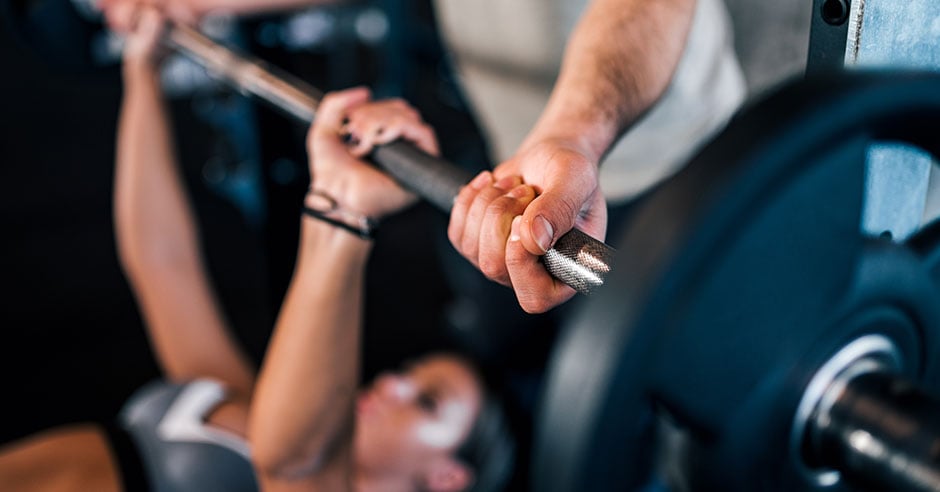Hormonal Response to Strength Training
Strength training causes a series of physical changes to the body and it’s easy to notice external changes like increases in muscle tone and mass; however, it is less obvious to see hormonal responses and changes within the body.
Athletes and coaches should understand the effects of hormones in order to design an effective strength training program to maximize performance.
Hormones
Hormones play a significant role in muscle hypertrophy and strength development. Hormones are chemical messengers that travel through the body and regulate complex actions, such as growth, metabolism, fertility, and the body’s reaction to physical stress. In response to signals from the brain, hormones are released directly into the bloodstream and circulate freely until they dock at their “target” cells. Once a hormone reaches its target, it causes a biological change by altering protein synthesis.
Hormones travel all throughout the body, carrying messages that help distant parts communicate and create changes orchestrated by the brain. Hormone production during exercise can vary; factors such as overtraining, nutrition, and sleep can affect your body’s ability to release a normal dose.
Anabolic vs. Catabolic Hormones
Anabolic and catabolic hormones have opposing effects and need to be balanced so that one does not overpower the other.
Anabolic Hormones
Anabolic hormones, like testosterone and growth hormones, contribute to protein synthesis in the muscle. Anabolic effects, such as accelerated growth of muscle, bone, and red blood cells and increased neural conduction, help athletes build strength and develop athleticism. They also promote life extension, well-being, immunity, energy, and fat-burning. Growth hormones are released during the early stages of deep sleep, and both growth hormones and testosterone respond positively to exercise and work together to build strength in muscles.
Catabolic Hormones
Catabolic hormones, like cortisol, promote muscle degradation. Cortisol is released in response to stress, both real and imaginary. The brain perceives moderate exercise as a form of physical stress and releases cortisol to help the body prepare for a “fight or flight” scenario. As a result, cortisol stimulates protein breakdown in the muscle to release fuel into the bloodstream for quick usage. It also suppresses immune function and bone formation. Other stressors, such as lack of sleep, poor diet, and mental stress, increase this cortisol release. The catabolic effects of cortisol are negative for strength training and athletic performance.
Overtraining
Growth hormone and testosterone directly compete with cortisol during resistance training. In a healthy strength program, training improves anabolic hormone release while teaching the body to release less cortisol with each workout. If athletes over-train via higher volume or intensity, their cortisol release skyrockets. The stress of overtraining increases cortisol production and muscle breakdown, which makes it nearly impossible for athletes to build strength.
Recap
Hormones carry out complex functions in the body. Resistance training can maximize positive hormone effects if it’s conducted in a smart manner, but overtraining will cause serious muscle deterioration and performance inhibition. Athletes and coaches should understand the effects of hormones in order to design an effective strength training program. To learn about neural adaptations to strength training check out this article.
About the Author

At Bridge, we are all athletes and coaches first. As athletes, our team has experienced everything from riding the pine on JV, to winning NCAA championships, to competing in the Olympic Games. As coaches, we have helped countless athletes reach their full potential, winning everything from age group section championships to Olympic Gold Medals.
Related Posts

The Best Bench Press Variation You’re...
This post is part of our Coaches Corner series with Taylor Rimmer. Taylor is NSCA-CPT, StrongFirst...

Does Powerlifting Harm Heart Health?
A recent study has discovered that a 12-week supervised strength training program (SSTP) may result...
-1.png)
Barefoot Running: Is It For You? |...
Run Free: Consider Less Cushion
Updated October 2020:
With more athletes looking for ways to...


